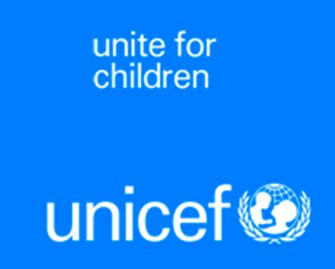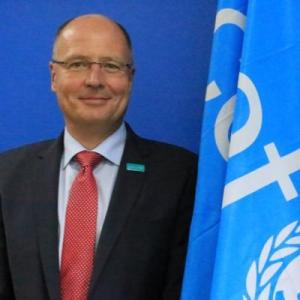Lack of access to hygiene could endanger new Development Agenda
Freetown, 15 October 2015 – Handwashing with soap is dangerously low in many countries, including Sierra Leone, UNICEF reports, despite its proven benefits to child health, and its importance in reducing the transmission of deadly diseases including Ebola.
Handwashing rates lowest in low-income countries
The eighth Global Handwashing Day comes less than a month after the United Nations adopted the Sustainable Development Goals (SDGs), including hygiene for the first time in the global agenda. One of the SDG targets is to achieve ‘access to adequate and equitable sanitation and hygiene’ by 2030.
In Sierra Leone, diarrheal diseases and respiratory infections are major contributors to the extremely high child mortality rate. Every year, 7,800 children die from pneumonia and diarrhea, translating to daily and monthly deaths of 22 and 660 children respectively (WHO/UN IGME estimates). These deaths can be reduced by one-half through improved handwashing behaviour.
“From birth – when unwashed hands of birth attendants can transmit dangerous germs – right through babyhood, school and beyond, handwashing is crucial for a child’s health. It is one of the cheapest, simplest, most effective health interventions we have,” said UNICEF Sierra Leone representative, Geoff Wiffin.
Global Handwashing Day in Sierra Leone will be marked by UNICEF and partners across the country under this year’s theme of “Raise a Hand for Hygiene”. Dedicated events have been organised for displaced flood victims at both the National Siaka Stevens stadium and Atouga stadium.
Development partners and UN agencies such as the WHO and UNICEF, Government representatives from the Ministry of Health and Sanitation; the Ministry of Education, Science and Technology; the Ministry of Water Resources; the Ministry of Social Welfare, Gender and Children’s Affairs; representatives from civil society, representatives from the Children’s Forum Network; as well as schools and communities will enjoy discussions, performances and refreshments.
In addition to the national events, UNICEF is directly supporting celebrations of Global Handwashing Day in 170 primary schools, and at 82 health centres and communities in eight districts, focusing mainly on the promotion of mass handwashing among school children and their families, while events to mark the day by other partners are also planned.
Sub-Saharan Africa, the region with the highest child mortality rates globally, also has particularly low levels of handwashing. The latest report from UNICEF and WHO says that in 38 countries in the region with available data, levels are at best 50 per cent. In Sierra Leone, handwashing levels pre-Ebola were less than 20 per cent.
Even health care facilities often lack places for handwashing. Some 42 per cent of them in WHO’s Africa Region have no water source available within 500 metres.
Stay with Sierra Express Media, for your trusted place in news!
© 2015, https:. All rights reserved.






